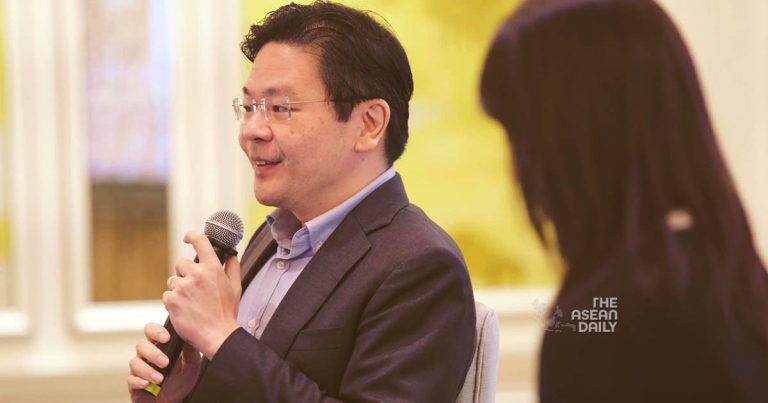17-8-2023 (SINGAPORE) The city-state of Singapore finds itself at the crossroads of financial strategy, as Deputy Prime Minister Lawrence Wong underscores the delicate equilibrium between economic growth and maintaining its formidable national reserves. In an exclusive interview with CNA for the newly launched series “Singapore Reserves Revealed,” Wong debunked the notion of “oversaving,” asserting that the nation’s reserves are in fact growing at a pace that is scarcely matching its economic expansion.
Wong candidly addressed common misconceptions about the use of the Net Investment Returns Contribution (NIRC), highlighting the vital role of channelling investment returns back into the national reserves. He argued that this practice is pivotal for bolstering the nation’s coffers over the long term, safeguarding against the depreciation of the reserves’ value.
The NIRC framework empowers the government to allocate up to 50 per cent of net investment returns from entities like GIC, the Monetary Authority of Singapore, and Temasek, as well as up to 50 per cent of net investment income derived from past reserves. Although opposition parties have pressed for a higher NIRC proportion to be used for recurring expenditures, Wong and other Cabinet ministers have steadfastly defended the current distribution as equitable, bearing in mind the needs of future generations.
In its recently released 2022/23 annual report, GIC unveiled a 20-year annualized real rate of return of 4.6 per cent, marking a surge from the previous financial year’s 4.2 per cent. This figure, the highest since 2015, has brought the efficiency of the nation’s investment strategies into focus.
Illustrating his point with a hypothetical scenario, Wong offered a vivid insight into the mechanics of the nation’s reserves. He outlined a situation where reserves yield a 4 per cent return, translating to an equal distribution of 2 per cent into the budget and reserves, respectively. Wong connected this illustrative example with Singapore’s annual economic growth rate of approximately 2 per cent, thereby dispelling the notion of “oversaving” and emphasizing the close alignment of reserves with the economy’s growth trajectory.
The genesis of Singapore’s steadfast “50-50 rule” was illuminated in Wong’s interviews. The Prime Minister, Lee Hsien Loong, underlined the commitment to maintaining this proportion, while revealing its origin in the visionary thinking of former President Ong Teng Cheong. Lee described the early stages of safeguarding the reserves and how the nation arrived at the principle of equal allocation for present and future needs. The Constitution was subsequently amended in 2001 to enshrine this rule.
Singapore’s fiscal landscape is deeply intertwined with the NIRC, which sustains a significant portion of government spending. Wong shed light on the pivotal role of reserves, not solely for emergencies, but also as a foundation for current needs. He underscored that the reserves offset Singapore’s structural deficit of about 3 per cent of GDP in its primary fiscal balance, preventing drastic cuts in spending that would impact public housing, infrastructure, and essential services.
Wong noted that Singapore’s reserves have been instrumental during times of crisis, referencing instances where the country tapped into the reserves to weather economic storms. Notably, during the global financial crisis in 2009 and the subsequent challenges posed by the COVID-19 pandemic, the reserves served as a buffer to prevent an onerous reliance on borrowing, underscoring Singapore’s resilience and ability to respond decisively.
The significance of the reserves is also evident in funding critical infrastructure projects such as Changi Airport Terminal 5 and land reclamation initiatives. Wong explained how the deployment of past reserves for land reclamation projects is a strategic move that doesn’t merely deplete reserves, but rather transforms them into valuable assets, ultimately contributing back to the financial pool.
As Singapore navigates the intricate balance between economic expansion and the safeguarding of its reserves, Deputy Prime Minister Lawrence Wong’s insights shed light on the nation’s astute financial management, dispelling misconceptions and highlighting the nuanced strategies underpinning Singapore’s financial security.




